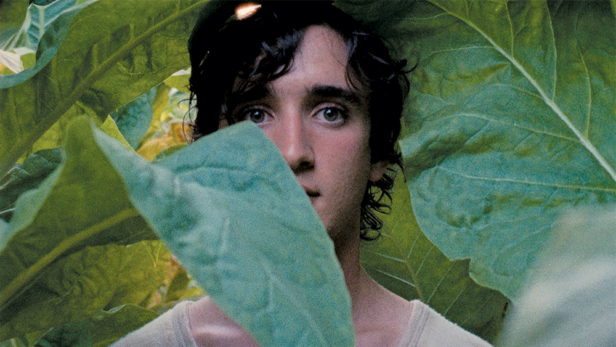Underneath its sun-baked rural Italian setting, Alice Rohrwacher’s third film is deceptively busy. There’s the true story about illegal sharecropping from which the idea for the script originally sprang, there’s social realism, political and social commentary, magical realism, a bit of fantasy and there’s even some Catholic-tinged spiritualism stirred in for good measure. But at the centre of it all is the titular Lazzaro, a man whose unending goodness means that he’s exploited and put-upon by his neighbours but who never complains, who always keeps a smile on his face. His steadfast benignity acts as an anchor, a calming centre which keeps the story feeling oddly focused despite itself.
This sense is bolstered by the intentionally classical feel of the first half, with the filmmaker and cinematographer Hélène Louvart shooting on Super16 to create an uncertain time period that’s only betrayed by glimpses of a mobile phone belonging to the landowner’s bored teenage son Tancredi. It’s Tancredi who sets the actual plot of the film in motion when he convinces Lazzaro to help him fake his own kidnapping. When the police finally get involved, they discover that the Marchese (Nicoletta Braschi) has been telling her workers that they’re still in her debt.
It’s easy to name influences on the both the film’s real and magical elements, particularly in the grand Italian tradition of both genres, but the second half and its time jump is almost a blend of Time Bandits and Wings Of Desire, as Lazzaro finds himself in the big city with his former acquaintances who are now hustling and scraping to make a living. There’s bitter, biting commentary on the exploitation of the working classes and the blithe greed of the upper crust, but it’s a tender and spiritual film too with some well observed humour beautifully played by the cast. Sergi López (Pan’s Labyrinth) is great value and Alba Rohrwacher is superb, but it’s the smiling face of non-professional actor Adriano Tardiolo which will stick in your mind. Rohrwacher is going for timeless and she might have made a new classic.
